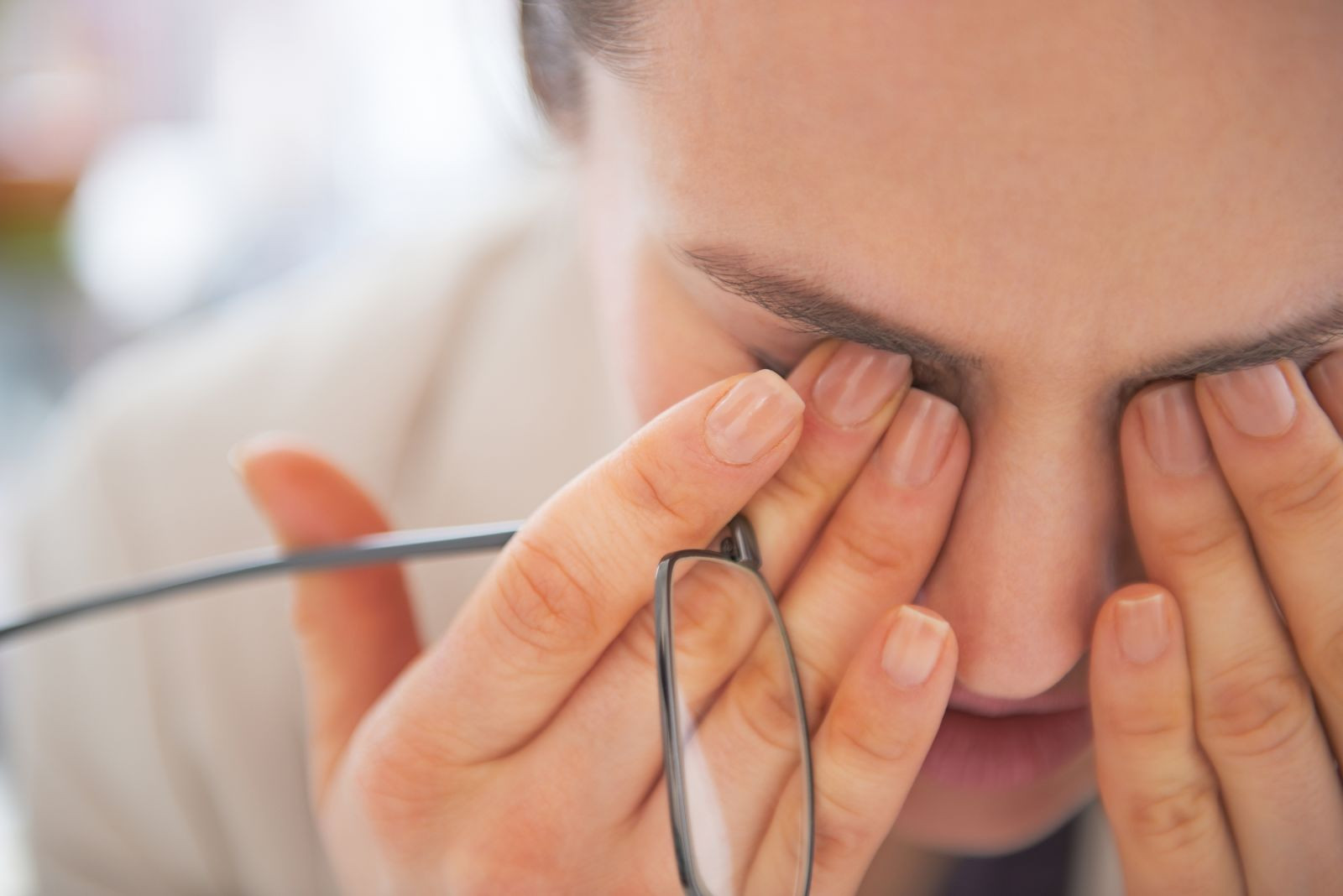Dry eyes? Try this!
Artificial tears, warm compresses, eye massage, or prescription medications may ease your discomfort.

Image: © iStock
According to the American Optometric Association, most older adults experience some of the gritty, burning symptoms of dry eye syndrome. "The severity varies, from people who only get dry eyes in the winter to people who have dry eyes every day," says Dr. Matthew Gardiner, an ophthalmologist with Harvard-affiliated Massachusetts Eye and Ear Infirmary.
The eyes have it
Our eyes have a few sources of moisture. One is the lacrimal gland in the upper outer quadrant of the eye. It can produce large quantities of tears (if you cry or if something gets in your eye).
Other sources include a network of glands embedded in the white surface of the eye and the undersurface of the eyelids (the conjunctiva) that produce water or mucus, and glands at the edge of the lids that produce an oily substance. The cocktail of water, mucus, and oil makes up the tear film on the eye surface. We need this film to see properly. "Each time you blink, you reapply a new wet surface," explains Dr. Gardiner.
No more tears?
As we age, our tear production slows. If the lacrimal glands don't make as many tears, you'll have a problem with the quantity of tears. If some of the other glands slow, such as those that produce oil, you'll have a problem with the quality of tears, since you need all three tear components for the tear film.
Dry eye syndrome may also result from medications (like antihistamines or blood pressure drugs), underlying conditions (like thyroid problems or diabetes), your environment, eye surgery, contact lens use, or even looking at electronic gadgets too long without blinking. (If you go too long without blinking, you're not giving your eyes a chance to replenish the tear film.)
Treatment
Don't let dry eyes go untreated. That can lead to infection or even scarred corneas.
For people who make enough tears but have dry eye symptoms, Dr. Gardiner recommends warm compresses and gentle eye massage to stimulate the oil glands on the lid margins.
If you aren't making enough tears, he recommends using artificial tears or medicines that increase tear production, such as ophthalmic cyclosporine (Restasis). There's even an in-office procedure to block tear drainage by inserting plugs into the tear drainage ducts.
Some research has suggested that caffeine can help dry eyes. "Caffeine does increase the production of the lacrimal glands," says Dr. Gardiner, "but be careful about increasing your caffeine intake. Too much caffeine can cause jitters and insomnia."
Disclaimer:
As a service to our readers, Harvard Health Publishing provides access to our library of archived content. Please note the date of last review or update on all articles.
No content on this site, regardless of date, should ever be used as a substitute for direct medical advice from your doctor or other qualified clinician.












